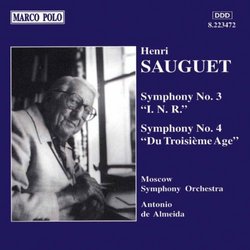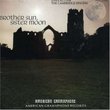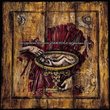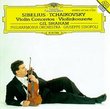| All Artists: Sauguet, De Almeida, Moscow Symphony Orchestra Title: Symphonies 3 & 4 Members Wishing: 0 Total Copies: 0 Label: Marco Polo Release Date: 4/29/1997 Genre: Classical Styles: Historical Periods, Modern, 20th, & 21st Century, Symphonies Number of Discs: 1 SwapaCD Credits: 1 UPC: 730099347228 |
Search - Sauguet, De Almeida, Moscow Symphony Orchestra :: Symphonies 3 & 4
 | Sauguet, De Almeida, Moscow Symphony Orchestra Symphonies 3 & 4 Genre: Classical
Sauguet (1901-1989) was a French composer whose music always followed logical lines of development, but nonetheless kept to a strict tonality. (This was due to the sometimes-obnoxious influence of Erik Satie). If there i... more » |
Larger Image |
CD DetailsSynopsis
Amazon.com Sauguet (1901-1989) was a French composer whose music always followed logical lines of development, but nonetheless kept to a strict tonality. (This was due to the sometimes-obnoxious influence of Erik Satie). If there is an influence in Sauguet's writing, it comes from Milhaud. All of his symphonies have it, and it's not a bad thing to have. In his Symphony 3 (of 1955), Sauguet exhibits a kind of post-war athleticism, the opening theme distinct and engaging. His Symphony 4 (of 1971) deftly avoids elements of post-modernism and becomes a fully mature work of poise and sobriety (which he also got from Milhaud). --Paul Cook Similar CDsSimilarly Requested CDs
|
CD ReviewsWith a difference Paul Geffen | 03/07/2001 (4 out of 5 stars) "Many listeners are afraid that they won't like modern music. They turn to the music of the relatively distant past and let the received wisdom of history help to filter out the banal and trivial, and find quality. But the selection, while it speaks to human nature, often has little or nothing to say about our modern situation.The only thing left to do is to explore, take risks, and decide for ourselves what is good. We must become pioneers. This means from time to time exposing our ears to noise. Sauguet was not afraid to make noise. Charles Ives would have approved of this music. As Sauguet was essentially self-taught, his art was not spoiled by the abstractions of the academy, and the noise is enjoyable, mostly rough, and energetic.Sauguet rejected serialism and twelve-tone technique without losing touch with the spirit of the times. He was in close contact with many of the famous exponents of twentieth-century French music - Milhaud, Messiaen, Koechlin - and looked to Satie and Debussy as models. His music is essentially French in spirit, but also very much his own. These symphonies, while very modern in their melodic lines and harmonic structure, are organized in a traditional way, with three movements each and discernible themes, development, and coda. The third symphony includes a fugue, passacaglia, and scherzo. The passacaglia sounds like a dissonant version of Hovhaness, slow, steady, and logical. Try to imagine a Carl Ruggles fugue with a French accent, and you'll get a sense of the faster movements.The fourth symphony is described by the composer as a summing up, from the perspective of one near the end of life, but it doesn't sound like that at all. There's a lot of forward movement and little resignation. I wish I knew the name of the electronic instrument included in the orchestra for this work, but the liner notes don't say anything about it. (It might be the ondes martenot, though the tones all have a steady pitch.)The symphonies are well put together, the product of careful craftsmanship, but there is little in them of a lyrical nature. The themes often seem perfunctory and practical, and I cannot imagine any of them being sung. As a result the music is not especially memorable, although it is interesting to listen to.With this disc, Almeida completes the cycle of Sauguet's four symphonies, all apparently first recordings. Sauguet's music is enjoying a revival, at least on recordings. Four or five years ago maybe a handful of discs could be found, now it's dozens. But the Melodie Concertante for Cello and Orchestra, with Rostropovich as soloist and the composer conducting, is apparently out of print. That looks interesting on paper, at least.The sound on Marco Polo is clear and realistic, the dynamic range excellent. The performance is enthusiastic and technically fine.For those listeners who are willing to explore, the symphonies of Henri Sauguet offer a new and different experience. I found this music interesting and entertaining, and well worth hearing."
|

 Track Listings (6) - Disc #1
Track Listings (6) - Disc #1





![Across The Universe [Deluxe Edition]](https://nationalbookswap.com/cd//m/51/1251/1241251.jpg)



